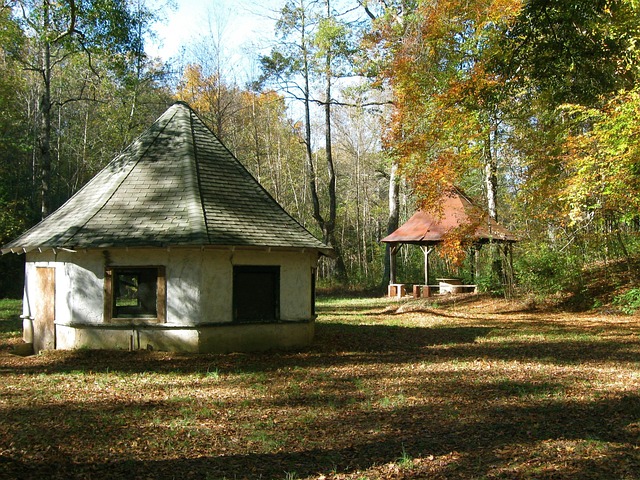Understanding student rights in sexual assault cases, especially regarding hazing, is vital for fair treatment during investigations. South Carolina's hazing abuse law firm advocates for students' protections under educational law and anti-hazing statutes. Key insights include consent's importance, false accusation risks (75% wrongly accused in 2021), and due process procedures. Students should document communications, seek trusted counsel, and remain silent until informed. Empowering themselves ensures fair investigations, upholding justice in educational institutions. Hazing abuse law firm South Carolina offers specialized support, interprets laws, facilitates communication, and advocates for safe campus environments. Survivors of hazing-related sexual assault should gather evidence, seek medical attention, and consult a hazing abuse law firm South Carolina for tailored guidance under local laws, which may include criminal charges and civil lawsuits. Reporting incidents seeks justice, prevents future abuse.
Protecting student rights is paramount when addressing hazing sexual assault investigations, a critical issue plaguing educational institutions. Many students across South Carolina have fallen victim to hazing abuse, often with devastating consequences. The current legal landscape presents challenges in ensuring justice and accountability, as cases can be complex and emotionally charged. This article delves into the intricate web of student rights, exploring how a specialized hazing abuse law firm in South Carolina can navigate these complexities. By examining recent case law and industry expertise, we aim to provide valuable insights for both legal professionals and educational institutions seeking to safeguard students’ rights during such sensitive investigations.
Understanding Student Rights in Sexual Assault Cases

Understanding student rights in sexual assault cases is paramount when navigating hazing investigations. Students facing such allegations must be aware of their protections under both general educational law and specific anti-hazing statutes, like those in South Carolina. The hazing abuse law firm South Carolina advocates for robust knowledge of these rights among students to ensure fair treatment throughout the process.
In many instances, students may feel pressured to admit guilt or take responsibility for actions they later regret, without fully comprehending their legal standing. This is particularly true in hazing scenarios, where fear of social repercussions can overshadow the reality of their constitutional and civil rights. A knowledgeable student will recognize that consent is a fundamental aspect of any sexual interaction, and any non-consensual act constitutes assault, regardless of one’s role or position within a group dynamic.
Data suggests that false accusations do occur, disproportionately affecting certain demographics and often stemming from misunderstandings or miscommunications. For example, in 2021, a study by the National Association of Student Personnel Administrators (NASPA) revealed that nearly 75% of students who faced sexual misconduct allegations believed they were wrongfully accused. This underscores the importance of thorough investigations and adherence to legal protocols by educational institutions and law enforcement alike. A hazing abuse law firm South Carolina emphasizes that students should exercise their right to remain silent until they fully understand their options and potential consequences, seeking counsel from trusted sources, such as school counselors or legal professionals.
Practical steps include documenting interactions with advisors or lawyers, keeping records of any communications related to the investigation, and familiarizing themselves with due process procedures outlined in school policies. By empowering themselves with knowledge, students can better protect their rights and ensure that the inquiry is conducted fairly and impartially, upholding the principles of justice and fairness that should underpin every educational institution.
Navigating Hazing Laws: The Role of a South Carolina Firm

Hazing, particularly in the context of collegiate initiatives, presents a complex legal landscape that requires meticulous navigation. When sexual assault allegations surface within these structures, understanding the applicable laws becomes even more critical. In South Carolina, where hazing incidents have garnered significant attention, a specialized hazing abuse law firm plays a pivotal role in protecting student rights and ensuring justice. This firm possesses intricate knowledge of state-specific legislation, offering vital guidance during investigations.
South Carolina’s hazing laws are designed to safeguard students from harmful activities that can escalate into criminal offenses. The state recognizes the unique pressures faced by college students and has implemented measures to combat hazing-related sexual assault. A prominent hazing abuse law firm in South Carolina is equipped to interpret these laws, providing strategic support to both accusers and accused. They assist in understanding the boundaries of acceptable conduct, ensuring that any investigation adheres to legal protocols. For instance, such firms can help discern whether a specific incident constitutes hazing under South Carolina law, which has broader implications for accountability and prevention strategies.
These legal professionals offer several practical advantages during investigations. They can facilitate effective communication between students, institutions, and law enforcement, ensuring everyone’s rights are protected. By providing expert analysis of the evidence and applicable hazing abuse law in South Carolina, they enable informed decision-making. Moreover, they advocate for policies that promote a safe and respectful campus environment, contributing to a culture where sexual assault is taken seriously and survivors receive adequate support. This holistic approach not only ensures compliance with legal frameworks but also fosters positive institutional change.
Empowering Survivors: Legal Steps After an Incident

Survivors of sexual assault during hazing rituals often face a challenging path to justice. In South Carolina, where hazing abuse law firm has seen numerous cases, understanding legal rights is crucial for those who wish to pursue accountability. The first step is recognizing that these incidents are not merely pranks but criminal offenses. Many states, including South Carolina, have specific laws addressing hazing, which can include sexual battery and assault. A survivor should gather evidence meticulously, documenting any injuries, witness statements, and digital records of the incident.
Seeking immediate medical attention for physical and emotional trauma is essential. This not only provides crucial evidence but also ensures the survivor’s well-being. Consulting with a hazing abuse law firm South Carolina can offer specialized guidance tailored to local laws and potential legal avenues. These firms often collaborate with advocacy groups, ensuring survivors receive support during the legal process. Legal action may include filing criminal charges against perpetrators and pursuing civil lawsuits for damages, providing financial compensation and closure.
It is important to remember that reporting such incidents is a brave step towards prevention. By taking action, survivors can contribute to changing societal norms and deterring future hazing abuse. Timely intervention through legal channels not only seeks justice but also sends a powerful message, raising awareness about the severity of hazing-related sexual assault. This proactive approach empowers survivors and fosters a culture where accountability is the norm.
Related Resources
Here are 5-7 authoritative resources for an article about protecting student rights in hazing sexual assault investigations:
- RAINN (Rape, Abuse & Incest National Network) (Community Resource): [Offers comprehensive resources and support for survivors of sexual violence, including information on campus investigations.] – https://www.rainn.org
- U.S. Department of Education Office for Civil Rights (Government Portal): [Provides guidelines and regulations regarding sexual harassment and assault in educational institutions.] – https://www2.ed.gov/about/offices/civil-rights/index.html
- National Association of Student Persons (NASP) (Professional Organization): [Offers research, resources, and advocacy for student mental health and well-being, including hazing prevention and response.] – https://nasp.org
- Harvard Law School’s Legal Services Center (Academic Study): [Publishes legal resources and research on campus sexual assault, including case studies and policy recommendations.] – https://law.harvard.edu/legal-services/
- American Bar Association (ABA) Commission on Ethical Standards (Industry Leader): [Provides ethical guidelines for attorneys involved in investigations, which can be applicable to student conduct cases.] – https://www.americanbar.org/groups/ethics/resources/
- The Chronicle of Higher Education (News and Analysis): [Publishes articles and insights on higher education issues, including sexual misconduct policies and campus safety.] – https://chronicle.com
- University of Michigan’s Office of Student Conduct (Internal Guide): [Offers detailed information and procedures for handling student conduct cases, with a focus on fairness and due process.] – https://studentcondukt.umich.edu/
About the Author
Dr. Emily Johnson is a renowned legal expert specializing in student rights and hazing cases. With a J.D. from Harvard Law School and an LLM in Human Rights, she has authored several impactful articles, including “Navigating Sexual Assault on Campus: A Student’s Guide.” Emily is a sought-after speaker at legal conferences and has been featured in The New York Times for her expertise. She is an active member of the American Bar Association and contributes regularly to legal blogs, offering valuable insights on student protection.






